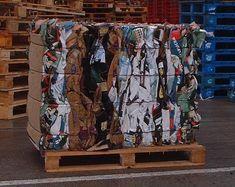
All the major retailers have put their weight behind the Waste & Resources Action Programme’s Courtauld Commitment launched this week to try and reduce packaging and food waste.
The programme has drawn up the commitment following a ministerial retail meeting, held at the Courtauld Gallery earlier this year, where environment minister Elliot Morley and Jennie Price, WRAP ceo, met with senior representatives from the majority of the top retailers, as well as the British Retail Consortium.
The overall aim is to deliver absolute reductions in packaging waste by 2010 as well as to halt growth by 2008. Those bound by the commitment also aim to identify ways in which they can tackle the problem of food waste.
"The BRC welcomes this environmental initiative," said BRC director general, Kevin Hawkins at this week's launch. " Retailers recognise their responsibilities when it comes to the environment and will do what they can to help and engage.
"A number of top retailers have shown their support for this Commitment, which should really help to ensure WRAP's targets are achieved."
Work under the commitment will look at reducing layers of packaging, light-weighting some packaging materials and initiating research into why consumers throw away an average £400-worth of food every year, with salad being one of the most wasted lines.
Each retailer will now be developing its own programme of work with WRAP, and several of them are already undertaking research or demonstration projects on packaging reduction funded through an £8m WRAP fund which is dedicated to stimulating innovation in this sector. Initial research on the issue of food waste is being conducted by IGD, the food and grocery think-tank, in partnership with WRAP. The research will conclude this autumn and recommend the most promising opportunities for waste minimisation.
So far those retailers involved are: Asda, Boots, Budgens, the Co-operative Group, Londis, Iceland, Kwik Save, Marks & Spencer, Morrison's, Sainsbury's, Somerfield, Tesco and Waitrose.
WRAP was set up in 2001 in response to the UK government's Waste Strategy 2000 and is a not-for-profit company limited by guarantee by Defra, the DTI, and the devolved administrations of Scotland, Wales and Northern Ireland.



